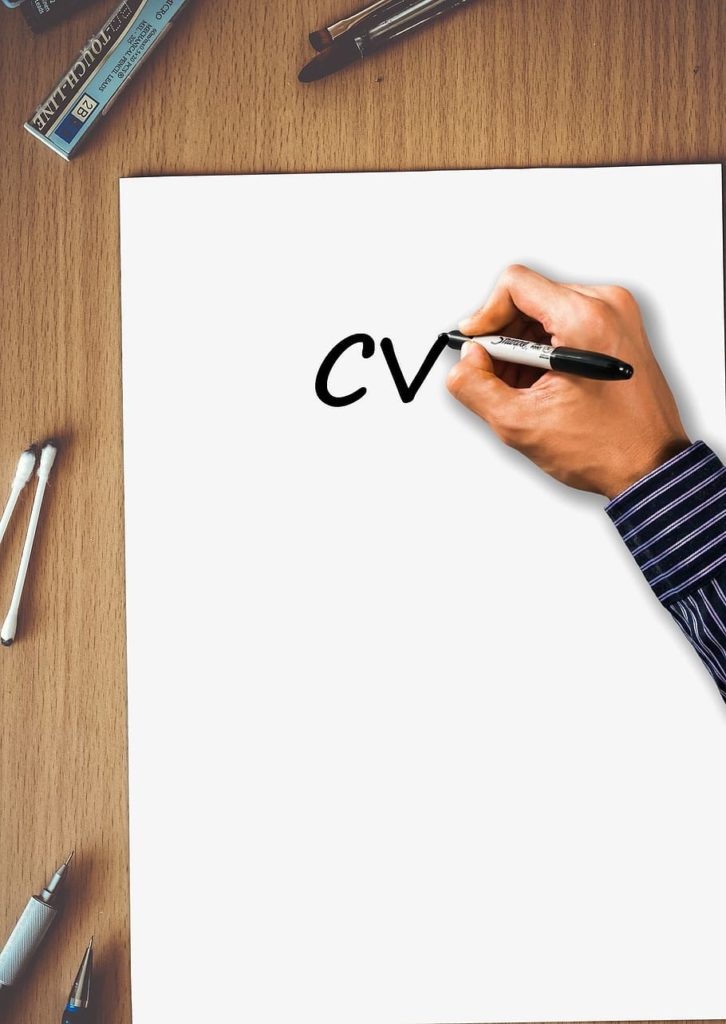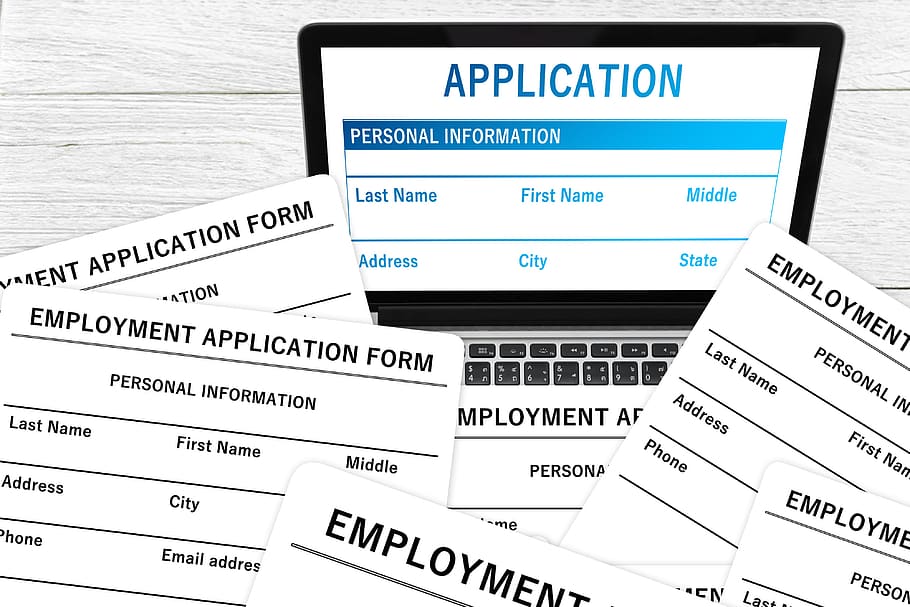Whether it’s the first, second, third and so on, finding a job and handling rejections would perhaps be one of the biggest challenges that we’ve all faced at some point in our lives.
What’s worse is that perhaps you don’t hear a response for half of the applications, and months later, rejection emails come in for the other half.
Or, you may have gotten to the final interview stages for a job opening, only to find out that you didn’t make the cut.
Whichever one it is, it’s a no from them.
The average number of people who apply for any given job: 118. Twenty-percent of those applicants get an interview.- Forbes
That’s right, you’re competing with about 118 people for every job you apply for.
At times, it’s extremely hard to maintain the same level of motivation and positivity to continue applying only to end up being rejected anyway.
Here are six tips to help you handle rejection, coming from someone who’s been rejected at least forty times.
Take It As An Opportunity To Improve Your Resume (CV)

Each job rejection you receive is an opportunity to improve. This could be amping up your CV, or tailoring it to match the job you apply for.
It’s true that there’s no one resume fit for all. Different companies have different values and look for different skills, so it’s important to work your CV around what you’re applying to rather than to just apply for twenty jobs with the same CV.
Sometimes, the company may be looking for particular traits, personalities or skills for the job that you may have missed from the job description, so do make sure you’ve included all the relevant qualities in your CV before applying.
Instead of taking rejection as a slap in the face, look at it as an opportunity to be a better version of yourself, and a better candidate for an open position.
Use Rejection As a Learning Opportunity to Improve Your Interview Skills

Job Rejection helps build resilience. Each rejection you receive is part of the process of you landing your dream job. Of course, it doesn’t happen overnight, but small steps are the beginning to bigger achievements.
“Man has never made a material more resilient than the human spirit.”
Of course, it’s hard to just walk away from rejection and pretend nothing ever happened, but trust me, a positive attitude and outlook when applying is crucial in developing your resilience and character.
No one likes rejection, nor does your employer. But think of it this way- when a company is hiring, an employer will perceive resilience as a desirable trait.
Not only does resilience show your capabilities in overcoming adversity in your everyday life, but it’s also a sneak peak of your character and how you would deal in certain situations in the workplace.
Particularly important if you’re applying for sales related roles, employers want to see that you can take ‘no’ for an answer, only followed by a stronger hunger to improve and succeed with incoming sales.
Take Note of The Interview Questions

After a few interviews, you probably would have realised that some questions seem to be asked in every interview.
“Tell me about yourself”, “Why do you want to work for us?”, “How did you handle this situation and what was the outcome?” are just some of the very common questions that interviewers love to ask.
There may have been times where interviewers asked you questions that you didn’t know how to answer, and you just sat there, completely blank. Or, you nervously made up some answer that didn’t even tackle the type of response the interviewer is looking for.
Remember to always prepare your answers beforehand and research the type of questions you may be asked. Also, don’t forget to prepare some questions to ask your interviewer, too. Employers want to see that you’re genuinely keen to work for them, and that they’re not just another random job that you’d applied for.
However in situations where you ‘stuffed up’ an interview, whether it be interviewers throwing curveballs at you or you hadn’t adequately prepared, take a note of them. Write down each of those questions you couldn’t answer, and start preparing a response for the next job opportunity.
Over time, once you get the hang of the type of questions that are commonly asked, you’ll nail your next interview.
Each failed job interview is an opportunity for you to develop your interview skills and be more prepared for the next. Understanding what the interviewer is asking as well as the response they’re looking for will put you at an advantage.
Know Your Strengths and Weaknesses Before Entering The Interview

There could be several possible reasons why you didn’t get the job. It may be due to the particular skills the job description is looking for that you lack, or it could also be your inadequate emphasis on the strengths and skills that the employer wants to hire for.
Take time to evaluate your own character, how you like to work and the type of workplace culture you thrive in. Think about the situations at work that you’ve dealt particularly well with, or what your colleagues say about you, the good and the bad.
Job rejection isn’t always about being underqualified for the job, but more so how you identify your weaknesses and address what you’re doing to tackle them.
The interviewer certainly does not want to hear about things you’re bad at, with no plans to get better.
And most certainly, having no weaknesses is not quite believable.
Be open and honest to your interviewer about your weaknesses, and what you’re currently doing to overcome or compensate for these shortcomings.
Similarly, you want to be able to identify your strengths and how your skill set or traits will make you an outstanding candidate to the rest. Oftentimes, you may very well be qualified for the job, but ultimately, it is how well you articulate your strengths and experiences to the particular job you applied for that may win or lose you the job offer.
Thank the Employer And Ask For Feedback

It’s always a good idea to send the interviewer or employer an email following the interview to not only thank them for the opportunity, but it’s also the last chance for you to leave a positive impression on the interviewer and have them remember you.
Interviewers interview tens of people on a daily basis, and it’s very easy for them to overlook you and not progress you onto the next round if they can’t remember you.
If the 20% of the 118 candidates applied for the same position and only you sent off that email, you already stand out from the rest. It also shows the company how much you want the job.
Interviewers do really read your emails, so being polite and thanking them for their time could really put the odds in your favour.
Remember, a little goes a long way.
Also, receiving a rejection email doesn’t mean you should just move on from the company and never consider them as a potential employer. Especially if you really align with the company and everything it does and stands for, sending a thank- you email following the rejection could make a big difference in them considering you for future openings.
Again, it’s important to remain positive and take every rejection as an opportunity for you to learn and improve. You can also take this opportunity to not only thank the interviewer for getting back to you but also to ask for feedback.
Knowing where you went well and where you went wrong can really help you figure out the things you need to work on in order to maximise your chances of landing your dream job.
If you take the time to reach out to the interviewer, there is a good chance that the interviewer will actually get back to you and even give you advice. Plus, they’re going to have a stronger impression on you as a potential candidate, too.
A little goes a long way, and taking the time to thank your interviewer after a rejection can be quite beneficial.
Apply For Multiple Jobs – Don’t Put All Your Eggs In One Basket

Getting rejected from a job position you had high hopes for, hurts even more.
Perhaps you’ve only applied to a few positions, and one of them got back to you.
You make it through the first interviews and you’re feeling quite good about it, so you stop applying for more jobs, assuming you were successful.
A few days later, the rejection email arrives.
It is particularly difficult to accept the fact that you didn’t get a position when you had already spent so much time going through the entire application process. Your time and emotional investment to that one job only makes it harder to overcome an unexpected rejection.
When hunting for jobs, it’s a good idea to apply for multiple positions each time. Your expectations will inevitably be set high when you only apply for a few positions.
When a company gets back to you and advances you through the interview stages, remember that the level of competition is still the same, and it only gets harder.
It’s important to consistently maintain the same level of motivation and continue to apply to more positions, even if you feel confident about a particular opportunity. There might just be a candidate more suited to the role than you are, even if you think you performed well.
Rejections in your career are definitely not easy to overcome, but it’s ultimately your mindset and how you approach the idea of being rejected that changes the game.
Looking to read up on more content related to all things business and beyond? Sign up to our newsletter or connect with me on LinkedIn to stay up to date when we have new content!






